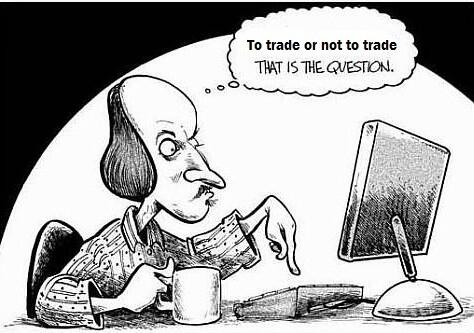 In the words of Warren Buffett’s mentor, Benjamin Graham:
In the words of Warren Buffett’s mentor, Benjamin Graham:
“Investing does not require genius. What it needs is, first, reasonably good intelligence; second, sound principles of operation, third, and most important, firmness of character.”
Since the first item on Graham’s list – “intelligence” – simply means the ability to read, add and subtract, we can skip quickly to “sound principles of operation.” This is where most investors come to a grinding halt, and with good reason. Survey the financial landscape and you will be bombarded with a plethora of investment vehicles including stocks, bonds, options, futures, forex, treasuries, municipals and so forth. Not only is it a challenge to figure out where to begin but, within each choice, the challenge is to figure out what system to apply! So how do you choose?
Follow those that have successfully traversed the rugged terrain already. Even the man considered to be the greatest investor of all time, Warren Buffett, had a mentor! At PSW, we love to educate as well as enrich. In numerous comments and articles, Phil expounds “sound principles of operation”, meaning a system of trading that has consistently worked for him. The reason the system has been successful is it evolves with the market!
 Although this is a simple concept most fail to trade this way. Most investors simply sell losing positions and suffer from emotional trading. In contrast, the approach Phil and I take is to modify our positions as necessary to account for changing trends or unexpected surprises. We had a great conversation recently about how so many will simply “give up” on a position when in reality there is just no need. With a little patience, positions can often be turned around and virtual portfolios made profitable.
Although this is a simple concept most fail to trade this way. Most investors simply sell losing positions and suffer from emotional trading. In contrast, the approach Phil and I take is to modify our positions as necessary to account for changing trends or unexpected surprises. We had a great conversation recently about how so many will simply “give up” on a position when in reality there is just no need. With a little patience, positions can often be turned around and virtual portfolios made profitable.
While the goal of the Short-Term Portfolio is often to make attractive gains over the short-term, Phil’s contingency should a position move against him is to offset an unexpected trend with appropriate options in order to salvage a trade (see "Stupid Option Tricks – The Salvage Play" from the Strategy Section). Irrespective of what happens then, he knows that his year will be a good one if he knows how to “stay with a trade” and turn it into a successful one – or at least get his original capital back! Where most give up on trades that move in the wrong direction, Phil and I both fight for our profits! Each strategy applied can ‘morph’ into another strategy to take advantage of changing trends or changing expectations.
 So with items 1 & 2 covered, how do we as investors succeed in the realm of “firmness of character”? Even investors that have a system of trading can fall victim to a failure to follow through as originally planned. This is no surprise at all! The media will constantly engage in the Hamlet-esque vacillation of “To Be or Not To Be” – “Will the stock market rise or will it fall?”
So with items 1 & 2 covered, how do we as investors succeed in the realm of “firmness of character”? Even investors that have a system of trading can fall victim to a failure to follow through as originally planned. This is no surprise at all! The media will constantly engage in the Hamlet-esque vacillation of “To Be or Not To Be” – “Will the stock market rise or will it fall?”
I challenge you to count over the course of just 20 minutes on CNBC how many times they segue with a question such as “So what is going to happen, is this good or bad for the economy?” or “Should you buy or sell stocks now?” or “Which way is the market heading?” The more we hear, the easier it is for all of us to be persuaded to one point of view today and something completely contrary tomorrow. The solution, as Phil is constantly reminding us, is to “think for yourself”. Know why you got into a trade and stick with your original premise unless a trigger has been pulled to tell you that you should be taking action to optimize some other trend.
If you can answer the following questions in the affirmative before trade entry, you are beyond most investors and your annualized returns should reflect your progress.
- Did I plan my trade?
- Do I have a clear goal of when to take profits?
- Do I know what I will do if the stock moves against me?
- Do I know how far the stock needs to move in both directions before I take action?
- Am I entering this trade calmly (remember emotional trading is dangerous trading!)?
Now that you have your checklist, post it where you can see it until it is internalized. It won’t take long at all and when it is internalized it should be the catalyst to greater success.
Have a fantastic week!
OptionSage



